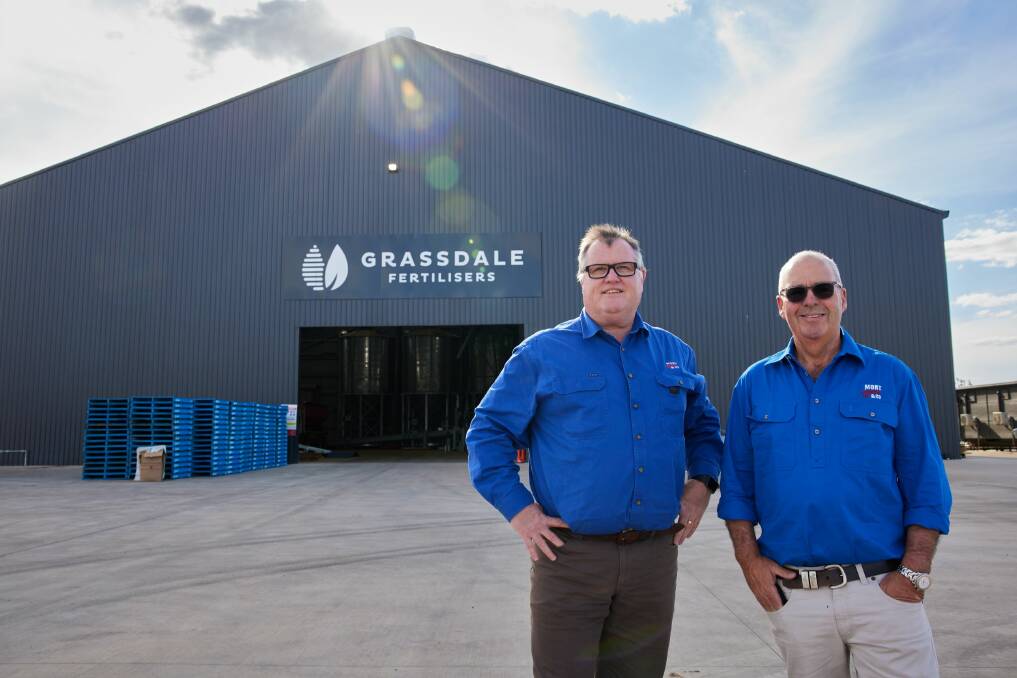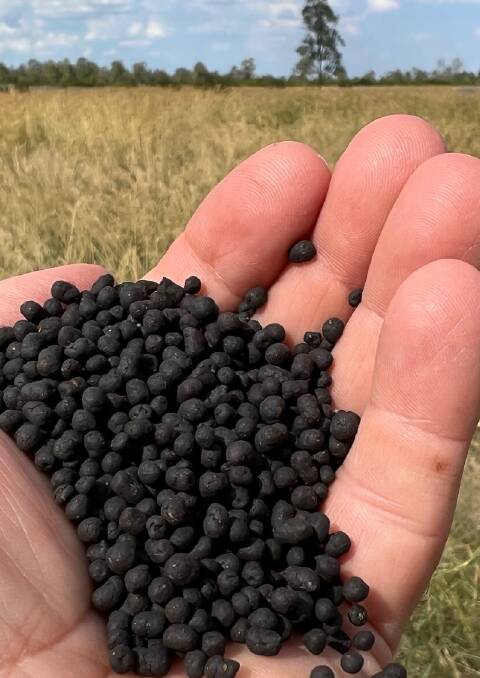
Grassdale Fertilisers will switch on one of Australia's biggest organic fertiliser production facilities this month.
The plant near Dalby will produce 20,000t of carbon-based organic granule fertiliser per year until an upgrade in 2023 will see production hit 100,000t.
That will make it the biggest organic fertiliser manufacturer in the country four times over, according to Grassdale.
The company will use cow manure from Mort & Co's adjacent Grassdale feedlot - Australia's biggest at 77,000 head. Mort & Co is also a major shareholder of Grassdale Fertilisers.
Destined for domestic and export markets
Grassdale Fertilisers general manager Brad Smith said the product would add value to both operations and would be sold primarily to domestic customers.
"At the moment, just about all of the organic fertilisers go into the horticulture and home garden markets, however, there has been enormous interest from broadacre farmers, which was unexpected," Mr Smith said.
"There's been a real increase in carbon sequestration and soil health awareness though, which this product contributes to."
Mr Smith said they even had customers in WA looking at large quantities.
"We've done one trial over there that was very successful and we're looking at the option of shipping fertiliser around to WA," he said.
On the export front, Mr Smith said Vietnam and the Middle East looked promising.
"We have a customer lined up in Vietnam that's very eager to buy the product from us and distribute it over there, and we're also looking at markets in the Middle East.
"There's a real push towards organic fertiliser in Asia as a whole. Organic matter improves water holding capacity and nutrient retention, so that's the obvious benefit in the Middle East into sandy soils."

More news
Farmers can use traditional equipment to apply it
When designing the product, Grassdale Fertilisers aimed for a granule the same size, density and crush strength as urea so farmers can apply it via the equipment they use for spreading their synthetic fertilisers.
Applying it with an air seeder allows accurate placement of organic fertiliser down with the seed or in furrow.
Mr Smith said farmers could apply from 50 to 200kg per hectare where it's needed.
"It's all about a targeted application rather than just broadcasting huge quantities over the surface," Mr Smith said.
"Even in an area where there's plenty of cheap cow manure available, farmers that have been applying 10 tonnes per hectare for the last 10 years are seeing the advantage of applying a smaller rate but as a targeted application.
"It's a huge logistical effort to spread 10 tonnes of manure, so being able to put out one to 200 kilos per hectare in a targeted application is very appealing."
Synthetics issues and carbon interest drives demand
Mr Smith said the short supply and high price of synthetic fertilisers was part of what was driving the current interest, as well as the increased awareness around carbon footprints.
Grassdale Fertilisers is currently conducting a carbon footprint assessment on the fertiliser, with the results ready by the end of February.
"Our Terrus granule is 31pc carbon, so for every tonne of Terrus applied, you offset more than one tonne of CO2 equivalent," Mr Smith said.
With the price of Australian Carbon Credit Units more than doubling since December, now sitting at around $55, Mr Smith said the value proposition was even better.
"It's a huge jump and it could be going towards $180 by the end of the year. That all just adds another value aspect to the product."
Initially, there will be three products available in 25kg, one tonne bags, and loose bulk.
To manufacture the granules, Grassdale composts the manure and compounds it into a granule with ingredients including gypsum, which provides calcium and sulfur, and sulfate of potash for potassium and sulfur.
One product also contains blood and bone sourced from Oakey Beef, which provides nitrogen, phosphorus and calcium.
Mr Smith said the granules had proven to be good carriers for many different products, with potential for granules to include rock phosphate, biochar and trace elements.
Want daily news highlights delivered to your inbox? Sign up to the Queensland Country Life newsletter below.


